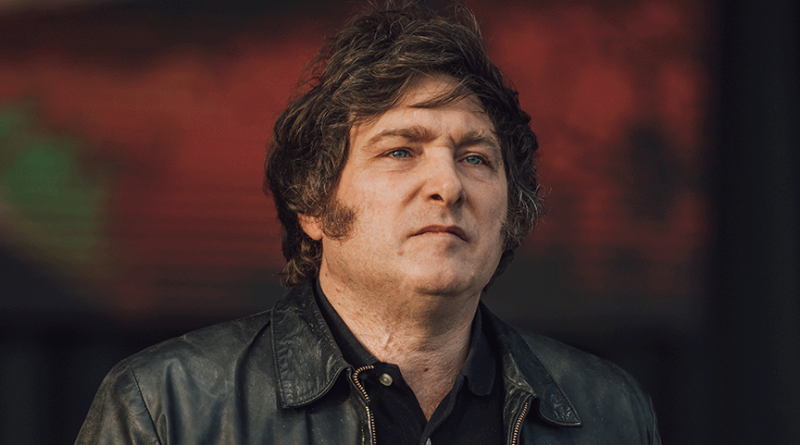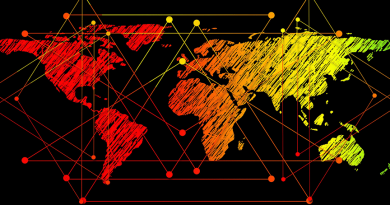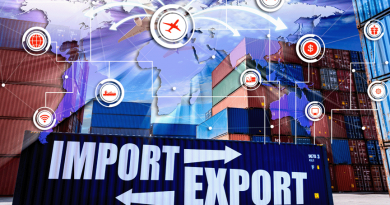Explaining the rise of Javier Milei in Argentina
Wilbert Jan Derksen is a Political Researcher at the TeldersStichting, a Dutch liberal think tank
The economy of Argentina has puzzled economists for years. On paper, this resource-rich country should be one of the most developed countries in the world, but the past century was marked by repeated economic collapse. Economists even refer to this oddity as the ‘Argentine paradox’.
But on November 19th it became clear that Argentines are more than fed up with this never-ending cycle of economic failure. They opted for a path of radical change, by voting the first libertarian president in the world in office: Mr Javier Milei. He wants to transform the country and build a new Argentina. But how did things get to this point? And more importantly, what exactly is the vision that Milei has for Argentina?
A century of economic misery
It might be difficult to imagine now, but not that long ago Argentina was considered to be a prosperous country with a bright future ahead. By 1913 it was among the top 10 richest nations in the world, with a GDP even bigger than that of countries like France and Italy.
Like the United States in the north, Argentina was considered to be the ‘land of opportunity’ of the south. The country attracted large waves of migration, especially from European nations like Italy and Spain. One of the architects of this success was the political thinker Juan Bautista Alberdi.
Inspired by classical-liberal principles like free enterprise and limited government, he wrote the blueprint of what would become the Argentine Constitution of 1853. From the 1880’s, when Argentina entered a period of political stability, the country’s economy started to develop rapidly.
That ended in the 1930’s, when, just like so many other nations across the world, Argentina suffered the consequences of the Great Depression. That created a period of political turmoil in the country. In 1943 there was a military coup, which ultimately resulted in the election of army colonel Juan Domingo Perón as president in 1946.
He developed his populist ideology of ‘Peronism’, based on three main principles: social justice, economic independence and political sovereignty. To accomplish these goals, Peron envisioned a strong role for the state. Economic problems and dissatisfaction with his oppressive style of rule resulted in a military coup against him in 1955 though and he was forced to go into exile.
In 1973 Perón made a long-awaited return, but he died one year later. His wife Isabel took over the presidency, but as the country faced skyrocketing inflation the military once again intervened and removed her from power.
What followed were some of the darkest pages in the country’s history, as a violent military dictatorship ruled the country between 1976 and 1983. Thousands of ‘suspected’ left-winged activists were tortured and murdered by this regime in what was later called the ‘Dirty War’.
Next to committing grave human rights violations, the dictatorship also failed to fix the economy. After losing to the United Kingdom in the Falklands War, the dictatorship stepped down and democracy returned to Argentina. The newly elected president Raúl Alfonsín however, was also not able to provide the economic recovery that the Argentines had hoped for.
In 1989 this led to the return of the Peronists to power, with Carlos Menem as the new president. Surprisingly though, in economic terms he made a 180-degree turn, deviating from traditional left-wing policies in favour of large-scale liberalisation of the economy. This worked quite well it turned out, as the economy started to grow.
Finally, things were looking up again for the country with annual GDP growth rates of around 7 percent. However, public spending remained too high and the country faced serious corruption problems. Inevitably, this led to a massive economic crisis in 2001, leading to violent protests all across Argentina.
Peronists switched strategies again and returned to left-wing economic policies when they gained the presidency in 2003. Under the Kirchners – first president Néstor Kirchner, followed by his wife Christina Kirchner in 2007 – Argentina climbed out of the crisis years, but its economy still suffered the consequences of trade restrictions and growing government debt.
In 2015 hopes were set on centre-right president Mauricio Macri to clean up the mess and to implement serious economic reforms. Four years later, however, the disappointing conclusion was that he had failed to do so. Even though he promised reforms, his intention to do it gradually meant that public spending remained more or less the same and that markets were barely liberalized.
In 2019, once again the Peronists assumed power and Alberto Fernandez was elected as president. The bad state of the economy only worsened when the COVID-19 pandemic hit the country. Fernandez was unable to prevent the death spiral in which the economy found itself.
Moreover, his popularity plummeted once it was discovered that Fernandez had been ignoring the lockdown measures on several occasions during the pandemic. Next to that, he also had to face several internal disputes in his government, adding to his ultimate decision not to run for a second term as president.
By 2023 the country’s annual inflation rate surpassed 100 percent and more than 40 percent of the population had fallen below the poverty line. Both Macri and Fernandez failed to restore the economy. Voters lost faith in the traditional parties on both sides of the spectrum. This paved the way for an outsider to take a shot at the presidency.
It is clear that Milei has a very ambitious plan for Argentina. He believes he can put the country back on the path of development like it was before this ‘lost century’
Who is ‘El Loco’?
Javier Milei was born in Buenos Aires in 1970. He grew up under difficult circumstances, as he suffered serious abuse from both his parents. Milei took an interest in economics when he experienced hyperinflation at the end of the 1980’s under President Alfonsín.
This motivated him to study economics. Later he worked as an economist for several organizations and also started to write books. In addition, he became a frequent guest on television programs, often stirring up debates with provocative statements.
Once a believer in Keynesian economics, Milei had a radical change of heart after he read an article by the libertarian philosopher Murray Rothbard. Milei then became a libertarian himself and an avid critic of Keynesian thought, eventually even qualifying Keynes as a Marxist.
He took an interest in the Austrian school of economics and became a big fan of philosophers like Friedrich Hayek, Milton Friedman and of course the earlier-mentioned Argentine thinker Juan Bautista Alberdi.
Milei entered politics in 2020 as part of the Avanza Libertad (Freedom Forward) coalition. A year later he was elected as a member of Argentina’s Chamber of Deputies. To demonstrate his libertarian convictions, he decided to raffle his monthly paycheck among Argentines, stating he would never accept money that was illegitimately taken from people through taxes. His popularity started to grow, especially among young voters, and in early 2023 Milei decided to participate in the presidential race.
Just his appearance reveals that Milei is no standard, boring politician. Once the lead singer of a rock band, he often dresses in a leather jacket. He lets his hair run wild, which to him symbolizes the untameable forces of the market.
In addition, he has five dogs (all named after economists), which are all clones of his deceased mastiff Conan. It is said that Milei still communicates with Conan through a spiritual medium, allegedly even receiving political advice from his dead pet. Milei also claims to have seen the ghost of the famed liberal philosopher Ayn Rand appear before him in a bookstore.
As a musician, Milei knows how to play a crowd and create political theatre. During his campaign he often appeared frantically swaying a chainsaw above his head, illustrating his ambitions to radically cut the size of government. Also in debates, Milei does not hold back, often bursting out into high-energy rants against his political opponents, earning himself the nickname ‘El Loco’ (the crazy one).
The libertarian alternative
So, what exactly are the ideas that Milei has for Argentina? First of all, Milei presents himself as a libertarian who wants to drastically overturn not only the economy, but the entire political structure of the country.
According to him, Argentina suffered for decades under the mismanagement and corruption of a ‘political caste’, comprised not only of politicians, but also unionists and bribed journalists. He sees them as part of a criminal gang, who only care about enriching themselves, at the expense of the rest of the country.
In terms of the economy, he wants to radically cut down government spending, for example by privatizing state-owned businesses and by bringing down the number of ministries from 18 to 8. He wants to lower tax rates and eliminate import tariffs.
In addition, Milei wants to roll back government control over things like salaries and exchange rates. In fact, he wants to completely abolish the Central Bank of Argentina and ultimately ‘dollarize’ the economy.
According to him this will stabilize the economy, as it takes away the government’s power to intervene in the economy through monetary policy. Milei is also in favour of what economists call ‘shock therapy’, meaning that he wants to quickly and radically liberalize the economy, rather than a more cautious and gradual implementation of such measures.
On social issues, Milei also has strong libertarian views, as he sees individual autonomy as the most important guiding principle. One extreme example of this is the fact that he wants to legalize organ trade. According to him, organ transplantations would be much more effective under a free market system.
Moreover, from a moral perspective, Milei argues that individuals should be able to decide over their own bodies, which includes selling parts of that body for whatever reason. Despite this plea for body ownership though, Milei is against abortion and he wants to repeal the recently approved Argentine law on that matter.
According to him, life starts at the moment of fertilization, so abortion goes against the right to life. Hence, Milei wants to call for a referendum on whether the law should be overturned or not.
Nevertheless, on issues like same-sex marriage, gender identification, drugs and prostitution he believes that an individual should be able to make his or her own choices, as long as the rest of society is not forced to ‘pay the bill’ (by having to pay taxes for it).
Winning the presidency
With many Argentines cheering for Milei’s promise of radical change, hopes were set sky-high during the first round of the presidential elections. Surprisingly though, with 30 percent of the votes he only came in second after the Peronist candidate Sergio Massa, who gained 36 percent of the votes.
This despite the disastrous economic situation the country found itself in under the Peronist government, in which Massa acted as the Minister of Economy. One of the ways Massa had succeeded in winning votes, was by promising more government handouts. Moreover, he tried to warn people of the consequences that Milei’s radical policies could have for the country.
His strategy worked in the first round, but it was not enough to win the second round. Focusing on the negative implications of a Milei presidency, he failed to present his own solutions for the country’s problems.
More importantly though, after the first round Milei gained the endorsement of two other politicians; former president Mauricio Macri and the number three of the first round of the presidential elections Patricia Bullrich. This was enough to quite convincingly hand Milei the presidency, gaining 11 percent more votes than his Peronist opponent in the second round.
Milei’s victory gained press coverage worldwide, with headlines stating that Argentines had voted for the ‘Trump of the Pampas’. Whether this comparison is fair, is up for debate. Although Milei has expressed admiration for the former US president, it would be far too simplistic to state that they are one and the same.
As explained before, Milei first and foremost identifies as a libertarian. Although they share viewpoints on issues like abortion and climate change, on other issues like gay marriage, drug legalization and the war in Ukraine Milei has very different ideas than Trump.
Moreover, while Trump argues for economic protectionism, Milei believes in an open economy. Branding Milei as just another version of Trump would therefore not be very accurate.
Challenges ahead
It is clear that Milei has a very ambitious plan for Argentina. He believes he can put the country back on the path of development like it was before this ‘lost century’. According to Milei, with his policies, Argentina can become a country like France or Italy within 15 years and after 35 years even become a global superpower like the US. Nevertheless, he will have to face some serious challenges ahead.
First of all, he is going to need to have the support of Congress. The problem is, however, that in Argentina Congress is renewed only partially every election. For now, his coalition just has 7 out of 72 in the Senate and 38 out of 257 seats in the Chamber of Deputies.
This means that Milei needs to form bonds with other parties within Congress. We know that El Loco is good at burning political opponents to the ground, but it remains to be seen if he is also able to adopt a more conciliatory tone in order to form political alliances.
To gain their support he will probably also need to make concessions, for which he might have to moderate his attitude on some topics. For voters who are now expecting radical change, that could result in disappointment.
To circumvent Congress, Milei stated that he could resort to referendums. Still, for such a referendum to be binding, a majority in Congress is needed. Non-binding referendums could still be used to apply pressure but are not as strong a weapon as Milei would like to have.
Even if Milei is successful in convincing others of his radical political agenda, the Argentines will need to brace themselves. His preference for economic ‘shock therapy’ entails drastic cuts in public spending, including the social programs on which a lot of Argentines depend right now. The idea is that this short-term sacrifice will create a more healthy and stable economy in the long term.
Argentines, especially lower- and middle-class families, are going to feel the hit though. It remains to be seen how much they can take before they start taking to the streets. In that case, Milei would have to find a way to calm the mood and not let things get out of control.
Then again, well aware of this possible outcome, many poor Argentines still voted for Milei. They are so fed up with how things are going now, that they prefer any alternative over the present situation and seem to be willing to let Milei sail the country into the storm.
To conclude, it is going to be some interesting years for Argentina. If Milei fails, libertarianism can be added to the country’s already packed ideological graveyard. If he succeeds, however, it might prove to be a catalyst for more libertarian leaders to rise up in Latin America.
Not only in Argentina, but also in other countries like Uruguay, Ecuador and Venezuela, the libertarian movement is growing right now. Milei could create a domino effect across the region, where in many countries voters are also fed up with the traditional political system.
The election of Milei might be a prelude to a radical ideological shift in Latin America. Reasons enough to keep a close eye on Argentina in the upcoming years.




